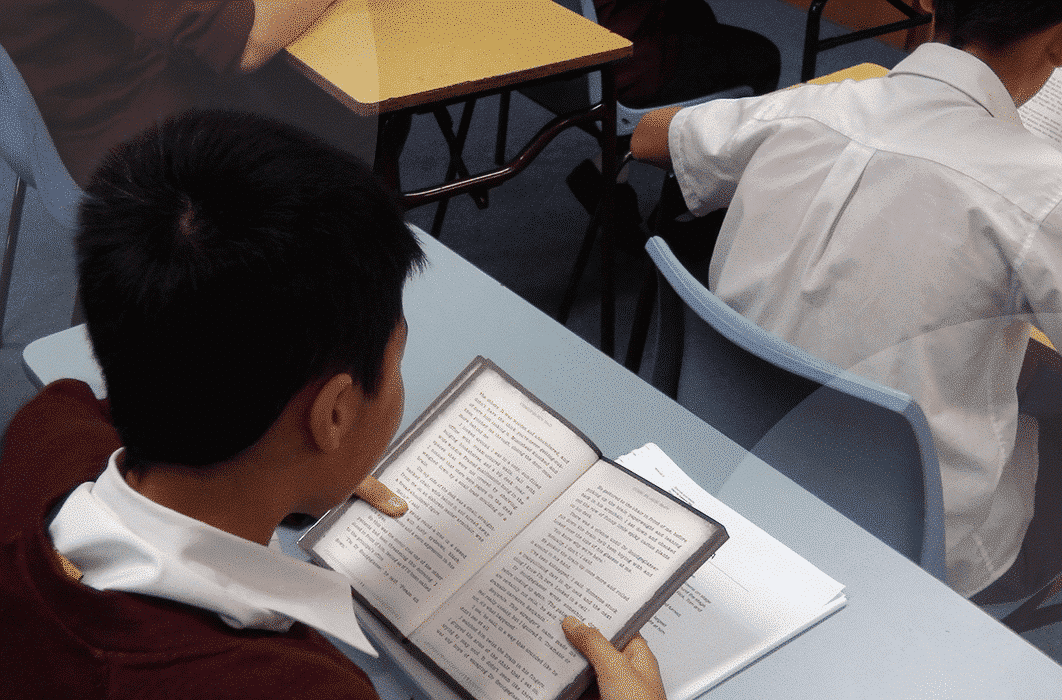Positive outcomes in high schools
For schools and educators, helping students at all levels to develop literacy skills is essential. While many MultiLit literacy programs are designed for implementation in the early primary years, we also provide programs for students in both upper primary and high school years. The right intervention strategies, literacy programs and resources, coupled with a Positive Teaching approach, are key to closing the gap for older students who have fallen behind.
We asked Kyle Pitt, Training Development Manager, about the programs and Professional Development MultiLit provides to help older students thrive and succeed!

Supporting low-progress readers
Kyle knows from his extensive work with teachers that it is quite common for high schools to have some students who struggle with literacy.
“There are many reasons why some high school students struggle. Contributing factors can be significant school absences, socio-economic status and learning difficulties, as well as schooling disruptions throughout the COVID-19 pandemic.”
But no matter what age or stage students are at, literacy outcomes can be improved.
“Literacy intervention is key to closing the gap for students who have fallen behind,” says Kyle. “Effective programs depend on reliable assessment tools to determine who needs support and what skills need to be taught. Once this is established, students need explicit and systematic instruction in these skills which are taught to mastery. Regular assessment is then used to determine when students have caught up to their peers and no longer need intervention, which is the ultimate goal.”
In addition to these intervention strategies, Kyle comments, “I believe that Positive Teaching is essential to achieving better outcomes for all students, from Foundation through to Year 12. I feel that the Positive Teaching approach is particularly important for children who struggle academically.”
Positive behaviour for positive outcomes
Positive Teaching is an effective approach to behaviour management that is based on research.
A research study by Professor Kevin Wheldall and Dr Robyn Wheldall found that while teachers gave praise, the majority of this praise was for academic work. When addressing students’ social classroom behaviour, they found that teachers used over three times as much disapproval as approval.
“When we increase our praise and approval for appropriate classroom behaviour, not just academic work, we provide a learning environment where all students feel successful and, as a result, we achieve better outcomes for all,” says Kyle.
This is why all MultiLit programs are underpinned by the Positive Teaching method, and why MultiLit offers specialised Positive Teaching and Learning Professional Development (PD) modules. This research-based approach is appropriate for students of all age groups, and focuses on:
- Increasing teacher praise and approval for appropriate classroom behaviour
- Decreasing teacher disapproval and reprimands
- Using explicit and contingent praise to shape student behaviour
- Ensuring students are on task and receiving maximum instruction, and
- Creating a positive and engaging classroom learning environment.
Kyle recommends MultiLit’s suite of Professional Development modules on Positive Teaching and Learning. ”These modules provide teachers and schools with practical tools, resources, strategies and knowledge on how to facilitate a positive learning environment, and how to work effectively with students with behaviours of concern.”
To understand the foundations and principles of Positive Teaching, the Positive Teaching for Effective Classroom Behaviour Management module is a great introduction. For educators wishing to delve further into Positive Teaching, more specialised pathways and modules are offered in Motivation and Teaching Strategies, and in the Assessment and Measurement of Behaviour.
Training is available via self-paced eLearning modules – perfect for busy educators.
MultiLit programs for older learners
Educators in upper primary and high school classrooms looking to address literacy issues can utilise MultiLit’s evidence-based programs and resources to help. “If you are unsure which program is best suited to your needs, I recommend contacting the MultiLit School Partnerships team for advice,” says Kyle.
He notes, “MultiLit programs specifically suited to older students include MacqLit, Reading Tutor Program and Word Attack Skills – Extension.”
MacqLit is a small group intervention program designed for struggling readers in Year 3 through to high school. This explicit and systematic reading intervention program provides a comprehensive sequence of lessons covering the key components necessary for effective reading instruction.
For older students, the Reading Tutor Program (RTP) is ideally suited for learners who need one-to-one intervention and have not acquired the basic skills to become functional readers.
Word Attack Skills – Extension is for older students who have mastered basic early reading skills but are finding it difficult to improve their reading to a level where they can access the more academic demands of the curriculum, or who have not achieved fluency with their reading. The one-on-one program teaches strategies for tackling multi-syllable words with confidence.
To help identify older low-progress readers, the Wheldall Assessment of Reading Passages (WARP) is a quick, simple test of oral reading fluency, useful for students who are still developing reading skills in the early high school years.
For further support and information on how MultiLit can help deliver positive outcomes in upper primary and high school – including assessment tools, literacy intervention programs and resources, and Positive Teaching and Learning PD – get in touch today.